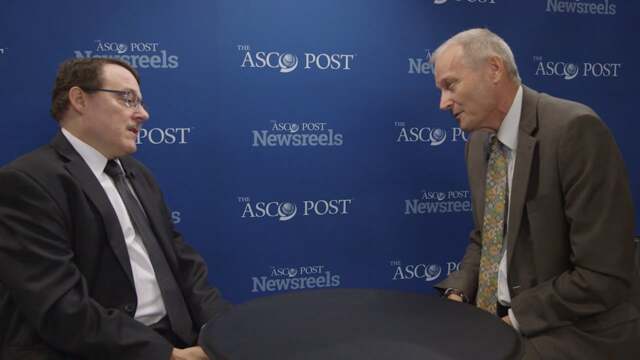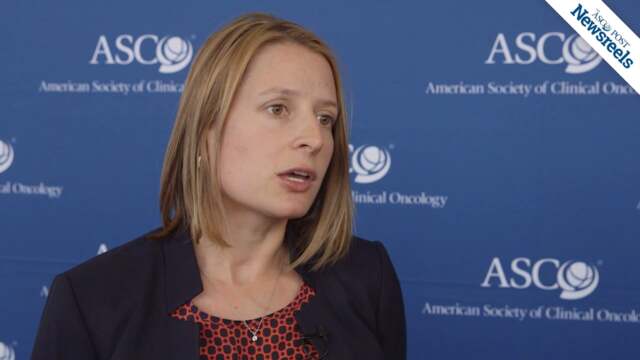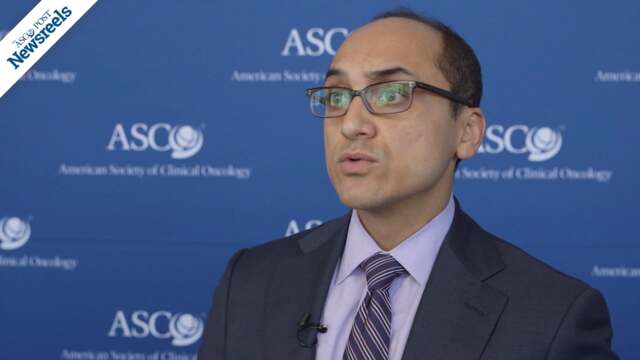Julie Lemieux, MD, on Letrozole in Postmenopausal Early-Stage Breast Cancer: Patient-Reported Outcomes
2016 ASCO Annual Meeting
Julie Lemieux, MD, of Centre Hospitalier Universitaire de Québec, discusses patient-reported outcomes from a study extending adjuvant letrozole for 5 years after completing an initial 5 years of aromatase inhibitor therapy alone or preceded by tamoxifen (Abstract LBA506). To see the French language version of this discussion, click here.
Alan Venook, MD, of the University of California, San Francisco, and John Marshall, MD, of the Lombardi Cancer Center at Georgetown University, discuss the impact of primary tumor location on overall survival and progression-free survival in patients with advanced disease (Abstract 3504).
Fabrice Denis, MD, PhD, of the Institut Inter-regional de Cancérologie Jean Bernard, discusses findings from a phase III trial on an app used between visits for early detection of symptomatic relapse and complications in high-risk lung cancer patients (Abstract LBA9006).
 To see the English language version of this discussion, click here.
To see the English language version of this discussion, click here.
Maria Clemence Schwaederle, PharmD, of the University of California, San Diego, discusses an analysis of 13,203 patients in phase I clinical trials, which showed that a personalized strategy led to improved response rate and progression-free survival (Abstract 11520).
Celestia S. Higano, MD, of the University of Washington, and Chris Parker, MD, of the Royal Marsden Hospital, discuss findings from this confirmatory study evaluating the accuracy of MRI and TRUS biopsy in men with an elevated PSA (Abstract 5000).
Yousuf Zafar, MD, of Duke Cancer Institute, summarizes his educational lecture on the financial toxicities of treatment and the need to focus on both short- and long-term interventions to reduce the burden on patients.





